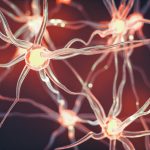Current research shows that, in addition to a variety of physical health concerns, post-concussion syndrome (PCS) may often lead to mental health problems such as depression and anxiety. Depression and anxiety can be debilitating issues for those who suffer from them. These conditions may be the result of a combination of different factors, including biological and physiological ones.
At Northoak Chiropractic, we believe that mental health issues like depression and anxiety are just as important to address as physical PCS symptoms. Our approach considers the symptoms that a PCS patient is facing as a part of a whole, looking for techniques and strategies that will address the underlying causes over the course of treatment.
Watch this video in our Introduction to PCS Management series to learn what causes post-concussion syndrome depression and anxiety:
In this post, we will discuss a common example of how anxiety manifests in concussion patients after a traumatic brain injury. We will also review the basic mechanics of neurons signalling, as well as the connection between eye movements and emotional responses in your brain. Together, these pieces will help explain the basic mechanisms behind depression and anxiety in PCS patients.
Please leave a comment or give us a call if you have any questions!
Anxiety at the Mall
If you have post-concussion syndrome (PCS), you may find that you have trouble visiting a mall, a grocery store, or driving along a busy highway. You may find that you become dizzy, anxious, or upset in these environments. Here’s why:
Malls and groceries stores are noisy, colourful places, filled with lots of visual and auditory stimuli for our brains. When you walk down the aisle at a grocery store, the items on the shelves stimulate your peripheral vision. Your normal reflex is to look at them — that’s because our brains are trained to react to bright colours or movements in our peripheral vision. This is a biological reaction from our days as hunter-gatherers, when these sorts of stimuli would have indicated the presence of predators or other dangers.
A healthy brain is used to the environment of the mall or the grocery store and can inhibit the reflex to look at bright things in the edges of our vision. Injured brains may not be able to inhibit this reflex in the same way.
The longer a PCS patient finds themselves in a mall or a grocery store, the more anxious and threatened they will feel. The same is true of a traffic on the roadway — cars coming up beside you in the next lane can cause your eyes to move reflexively, creating anxiety for PCS patients.
Did You Know Neurons Send Mostly Inhibitory Signals?
Neurons are specialized cells in our brain, responsible for transmitting information from one part of the brain to another using electrical or chemical signals called nerve impulses. If you’ve taken a basic biology course in the past 10 years, you probably know this already — but what you may not know is that the great majority of neuronal signals are inhibitory.
In other words, most of what your brain cells are saying to each other is actually “Stop” or “Do Not Fire”. Since neurons are responsible for transferring so much information, at such great speeds, it’s necessary for them to be ready to fire at all times. Think of them as racecars that are constantly revving up at the start line, prepared to go as soon as you release your foot from the brake.
When your brain is damaged by a head injury, it limits your ability to keep your foot on the brake. Neurons may fire spontaneously, causing random eye movements, twitches, tremors, feelings, sensations, and other reactions. These reactions can also include feelings of anxiety or depression, depending on the areas of the brain affected by your injury.
In the example of the mall, the neurons are triggered by the bright, noisy stimuli around us. This may cause PCS patients to experience post-concussion syndrome anxiety — feeling jittery, nervous, or on edge when they’re in certain environments. In many ways, the experience may feel similar to post-traumatic stress disorder (PTSD), in the sense that your reactions will feel out of control and you will startle easily.
Major depression is typically a result of these long-term stressors. Depressive feelings are commonly linked to stress and chronic illness. Both of these will be factors in patients who are suffering from post-concussion syndrome after a head injury.
If you are suffering from PCS depression, it is important to reach out to friends and family members for support. Supporters may be able to help you avoid environments that trigger your anxiety and can help to reduce your depression; doing groceries for you, driving you places, or helping to reduce your stress in other ways.
The Connection Between Eye Movements and Emotional Responses in Your Brain
Did you know that problems with eye movements can lead to anxiety and, conversely, anxiety can cause problems with eye movements? If you’re a PCS patient, you may have noticed this tendency, but didn’t realize that there was a link. This connection is well-documented by neurologists.
In your brain, the part most involved in the control and coordination of eye movement (the midline area of the cerebellum) and the part responsible for processing emotional responses, like fear and anxiety (the anterior cingulate), are hardwired together.
It’s common for people with eye movement problems to experience anxiety — and for anxiety attacks to bring on symptoms such as dizziness or blurry vision. As a result, treating the symptoms of post-concussion syndrome depression and anxiety in the patient will include the treatment of underlying eye movements problems.
Our Approach to PCS Treatment
At Northoak Chiropractic, we believe the key to treating concussions and post-concussion syndrome is to drive neuroplasticity in the injured pathways, where brain function has been impaired by a traumatic brain injury. To accomplish this, we use specific exercises, first indirectly and then directly, to improve plasticity in those areas.
The course of treatment will depend on the individual, as different injuries will cause damage to different parts of the brain. We believe it is very important to examine a patient before beginning any course of treatment for post-concussion syndrome.
For more information or to get started with a treatment plan, contact Northoak Chiropractic today.




